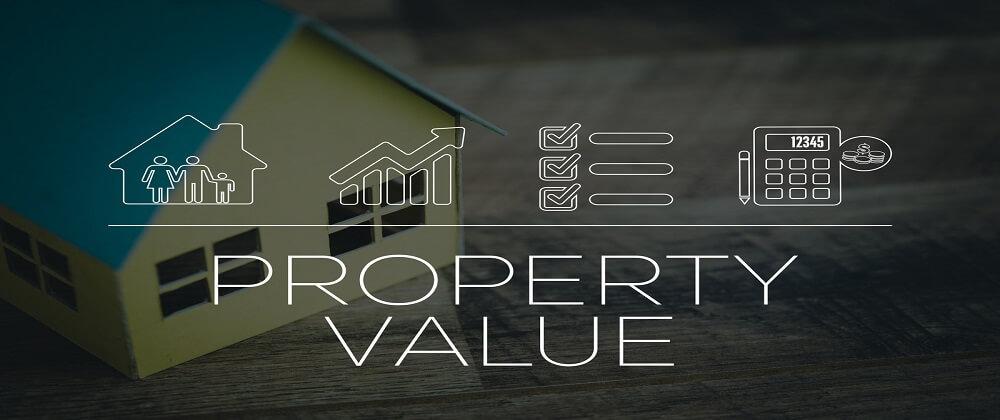
Assessed Value vs Market Value vs Appraised Value: Knowing The Difference
By: ROS Team
Figuring out real estate can be tough. Terms like “assessed value,” “market value,” and “appraised value” get mixed up a lot. This causes stress for no reason. Here are the main differences between assessed value, market value, and appraised value.
What is Assessed Value?
Your property’s assessed value is like the price tag the government uses to figure out your taxes. Local assessors decide this value using a set way based on where your property is, how big it is, and what similar properties nearby have sold for. They look at things like location, size, and recent sale prices of comparable properties.
The assessed value decides your property taxes. A lower assessed value means lower taxes. But don’t think you can sell your home for the assessed value. It’s only for taxes, not what your home is worth on the open market.
How to Calculate the Assessed Value of a Property?
The assessed value of a property is typically determined by local government assessors, and the calculation process can vary by jurisdiction. However, a common method involves multiplying the property’s fair market value by an assessment ratio set by the local taxing authority.

The formula for calculating the assessed value is:
Assessed Value = Fair Market Value × Assessment Ratio
Determine Fair Market Value: This can be based on recent property sales, appraisals, or a combination of methods.
Identify Assessment Ratio: The assessment ratio is a percentage set by the local government. It represents the portion of the property’s fair market value that is subject to taxation. For example, if the assessment ratio is 80%, then only 80% of the fair market value is used for taxation.
What is Market Value?
The market price tells us how much a property would sell for if both the buyer and seller wanted to make the deal and knew a lot about the home. They wouldn’t feel forced into the sale.
Unlike assessed value, market value is determined by market forces, such as supply and demand, economic conditions, and comparable sales in the area. Real estate professionals often use comparative market analysis (CMA) to assess market value by comparing similar properties that have recently sold.
What is Appraised Value?
The appraised value is what a real estate appraiser says a home is worth. The lender hires the appraiser to give an estimate. The appraiser’s job is to give a fair value for the home without being too high or too low. They look at what similar houses sold for to decide the value.
Appraisers look at different things to decide what a home is worth. They look at how good or bad shape the home is in, how big or small it is, where it is located, and what similar homes have sold for. The appraised value they come up with is very important. It tells lenders the most money they will loan for that home.
Assessed Value vs Market Value vs Appraised Value: Key Differences
| Criteria | Assessed Value | Market Value | Appraised Value |
| Purpose | Used for taxation by local government | Represents potential sale price in the open market | Determines property value for lending purposes |
| Determining Factors | Local tax guidelines | Market dynamics, supply and demand, comparable sales | Property condition, size, location, comparable sales |
| Timing | May change infrequently, not necessarily annually | Can fluctuate based on market conditions | Specific to the time of the appraisal |
| Entity Responsible | Local government assessors | Real estate professionals, buyers, and sellers | Licensed appraiser hired by a lender |
| Flexibility | May not reflect current market conditions | Reflects current market conditions | Takes into account property improvements and condition |
| Usage in Transactions | Not directly used in real estate transactions | Central in determining the property’s listing and sale price | Crucial to determine the maximum loan amount a lender is willing to provide |
| Frequency of Changes | Changes may occur infrequently | Can change frequently based on market dynamics | Specific to the time of the appraisal and property updates |
| External Influences | Primarily influenced by local tax regulations | Influenced by broader economic factors and local market conditions | Independent, but can be influenced by property improvements and market trends |
Is Fair Market Value the Same as Appraised Value?
No, Fair Market Value is not the same as Appraised Value. Fair Market Value is an estimate of the price a willing buyer and seller would agree upon in an open market, while Appraised Value is a specific value assigned by a licensed appraiser for mortgage lending purposes.
Assessed Value vs Market Value vs Appraised Value: Bottom Line
In short, assessed value, market value, and appraised value serve distinct purposes in the realm of real estate. Property owners should be aware of these differences to understand how each value impacts their financial obligations or potential sale price.








